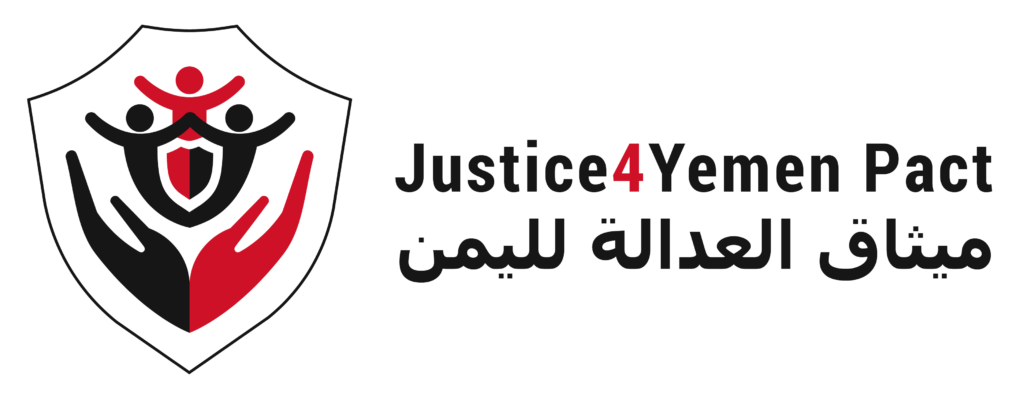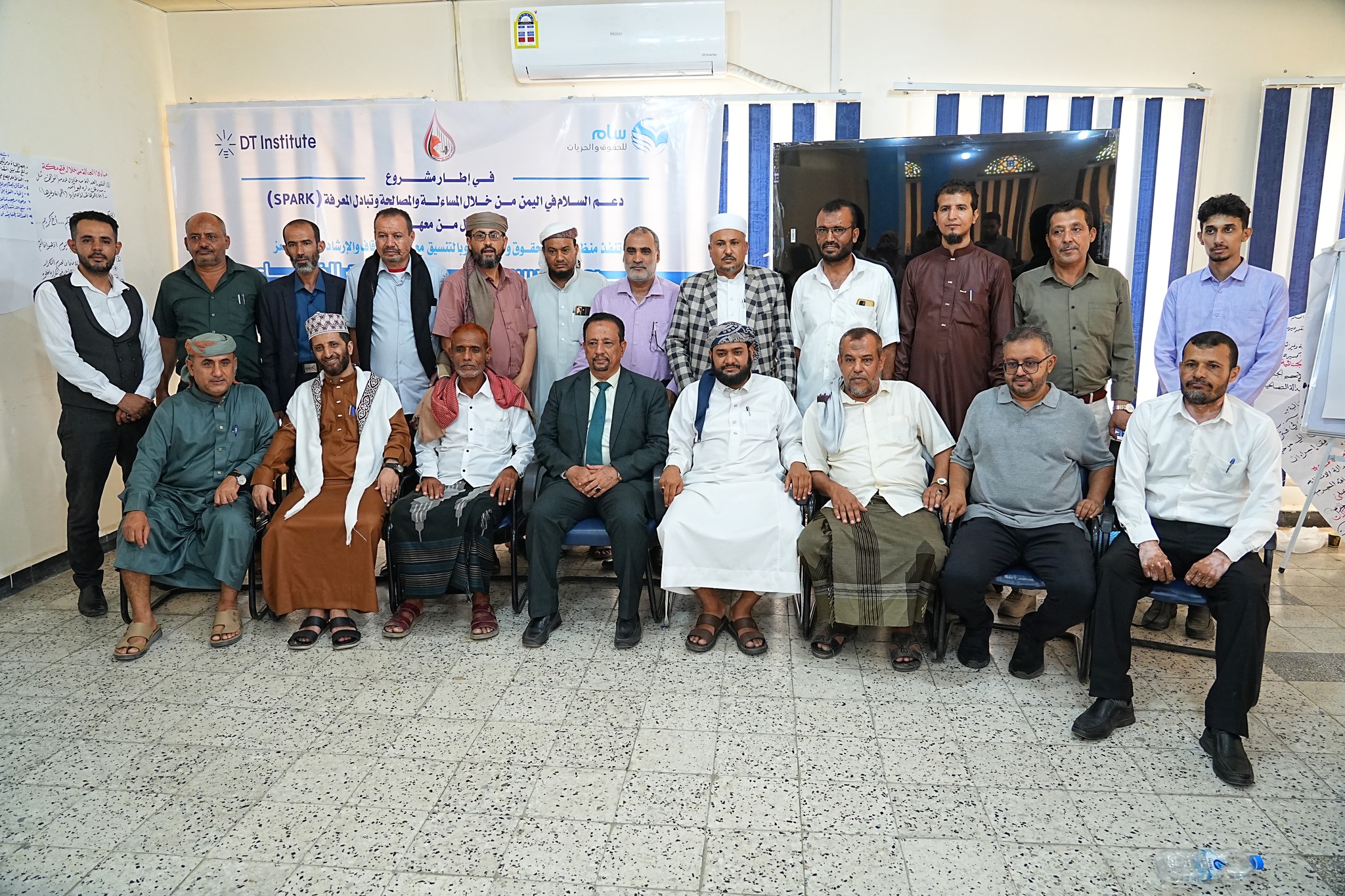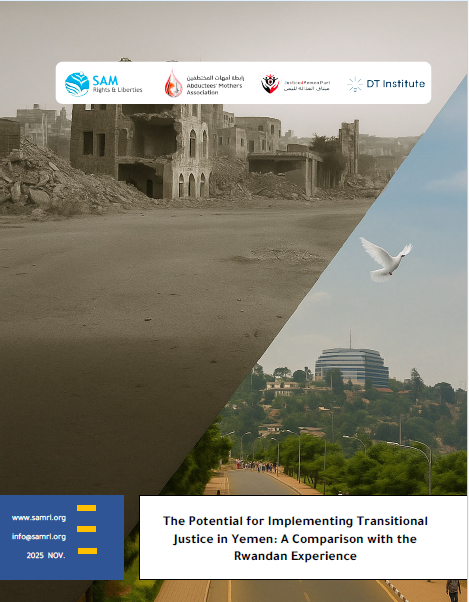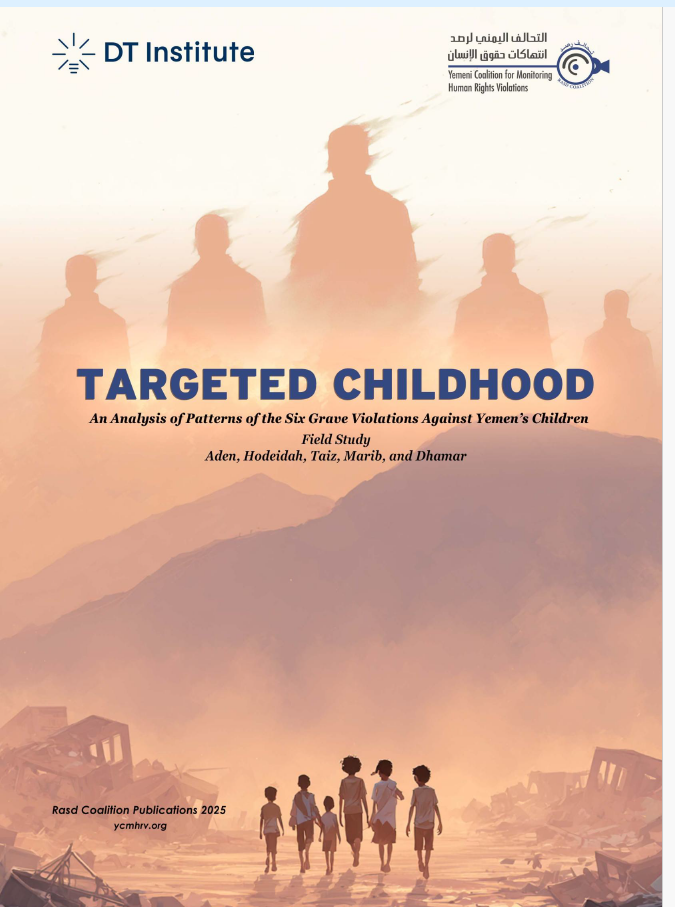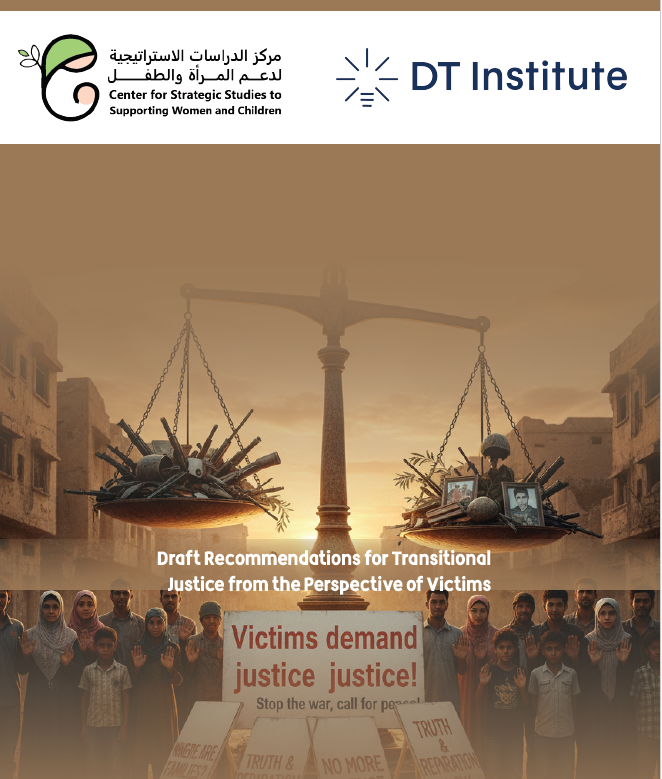A training workshop on “Transitional Justice and the Role of Religious Leaders in Supporting Community Reconciliation” was held in Taiz from July 26 to 28, 2025, as part of the SPARK Project. The workshop targeted 20 preachers from eight districts and aimed to build their capacity in integrating transitional justice principles within their religious teachings and community engagement.
It also marked the first awareness-raising campaign under SPARK project targeting preachers, implemented by the DT Institute in collaboration with the SAM Organization for Rights and Liberties and the Abductees’ Mothers Association, and coordinated with the Taiz Office of Endowments and Guidance, to strengthen the role of religious figures in promoting peace and reconciliation.
Participants emphasized that after years of conflict and deep suffering endured by Yemenis, religious discourse can play a transformative role—moving beyond traditional preaching to serve as a practical tool for acknowledgment of victims, reparations, building trust, and advancing national reconciliation.
At the conclusion of the workshop, the participating preachers and religious leaders issued a joint statement declaring:
“This statement is not merely theoretical recommendations; it is a declaration of intent and a practical commitment to continue serving our communities, strengthening the culture of justice and tolerance, and building bridges of cooperation with all actors working for a safe, just, and inclusive Yemen.”
The statement included several key recommendations, such as:
- Supporting community reconciliation initiatives based on justice and recognition of victims.
- Empowering scholars and religious leaders to actively contribute to peacebuilding efforts.
- Ensuring places of worship remain neutral and free from political conflicts and incitement.
- Strengthening the capacities of religious institutions and leaders through continuous training.
- Expanding community awareness programs to promote a culture of tolerance and reconciliation.
Participants also addressed messages to the Yemeni government and Ministry of Endowments to support the role of religious leaders in reconciliation, to the United Nations and international organizations to include religious leadership in peace processes, and to the UN Special Envoy to establish a dedicated track for their contributions. They further urged all conflict parties to stop exploiting religion for incitement and conflict, while encouraging local communities to embrace moderate and constructive religious discourse in support of peace.
Concluding their statement, the participants reaffirmed their collective commitment to continuing their role in serving their communities, stressing that moderate religious discourse can be a cornerstone for overcoming the legacy of conflict and moving toward a more just and stable future.

